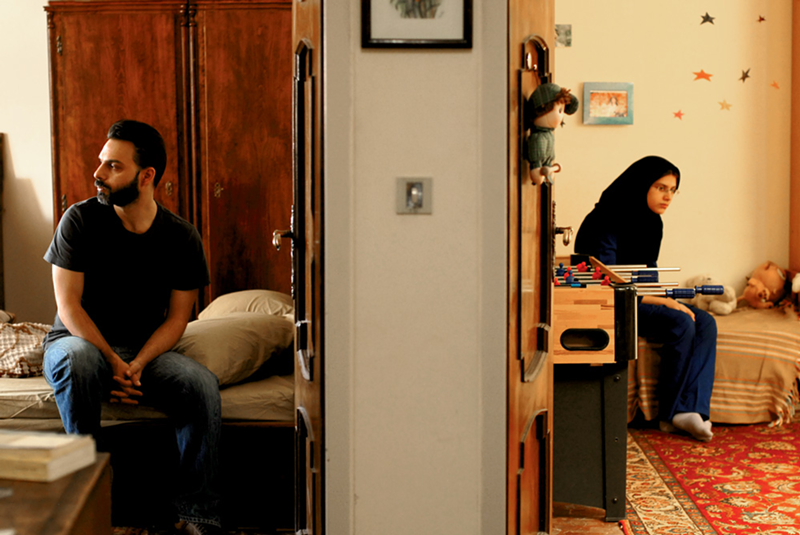In an awards season that celebrates George Clooney playing a beleaguered father/husband/family trustee who discovers his comatose wife has been having an affair while also juggling a monumental decision about the land rights to his family’s epic estate in Hawaii, it is fascinating that a film out of Iran could appear on the scene and cause audiences to question what we mean when we talk about the complexity of emotional dramas in narrative feature films.
But, that is exactly what A Separation, writer-director Asghar Farhadi’s Academy Award winner for Best Foreign Language Film, dares to do, and the film’s sheer audacity should serve as a wake-up call not only to filmmakers and audiences, but our social and cultural networks.
A Separation presents Simin (Leila Hatami) and Nader (Peyman Maadi), a couple caught in a legal battle. Simin wants a divorce, so she can take their daughter and flee the social oppression of Iran, with its restrictions on women, education and civil liberty. She wants her daughter to have an option for a better life — and as an unspoken benefit, she too will gain access to rights and opportunities for herself. But this is not to be, because the legal system is a male-dominated process rooted in religious authority, although there is more complexity in the situation.
Nader is not the stereotypical evil male capitalizing on the longstanding traditions of this culture. His decision to remain in the country (and to expect some support and understanding from his wife and daughter) stems from his role as the primary caretaker for his father who is suffering from Alzheimer’s. And the film refuses to paint Nader as a villain. He is driven in his own way by his obligation to do what he believes is right and just for his family, and he too is caught up by their economic situation, their inability to buy their way out of hardship, to easily absolve themselves during these crises.
The court sides, as it must in order to remain consistent to its creed, with Nader; thus Simin is forced to remain unless she is able to cut off all ties with her family and her cultural roots, which financial security might allow, but as a woman, a lesser class citizen in her society, we see that is not even a remote possibility. So she must use her wits to navigate as best she can, living a separate and totally unequal life in quiet isolation like women (of color or lower class designations) throughout history.
The film illustrates the different social, cultural and economic realities of life in Iran versus the United States. Our sense of the poor and the oppressed here cannot come close to the kind of situation that binds Simin and Nader. Escape for them might one day lead them or their daughter to America, but where could the downtrodden here go?
There is a rawness to the lives of Simin and Nader that goes far beyond the scripted scenes, digging deep into the very act of living and how people fight in the face of such inevitable tragedy. But they do so because there is hope — hope that we used to believe in, that we used to have faith in — that some act might redeem us, if only for a moment.
Even in the most restrictive of situations, a vital essence of our humanity continues to strive to (re)create a version of our true selves — a place where that idealized self can thrive. That sense transforms the play and fantasy of these stories into real-life, real human moments, rather than a stab at some perception that we dub “reality.”
This argument should take nothing away from films like The Descendants, American Beauty or the host of indie dramas that attempt to immerse us in the lives of others as they struggle courageously to live the dream. But I do mean to point out those films’ sharp contrast to A Separation, which shows the family as a necessary fabric, fraying at the seams but a patchwork that we endeavor to piece back together so that we can enjoy the warmth and security it still has the power to provide. (PG-13)
Grade: A

